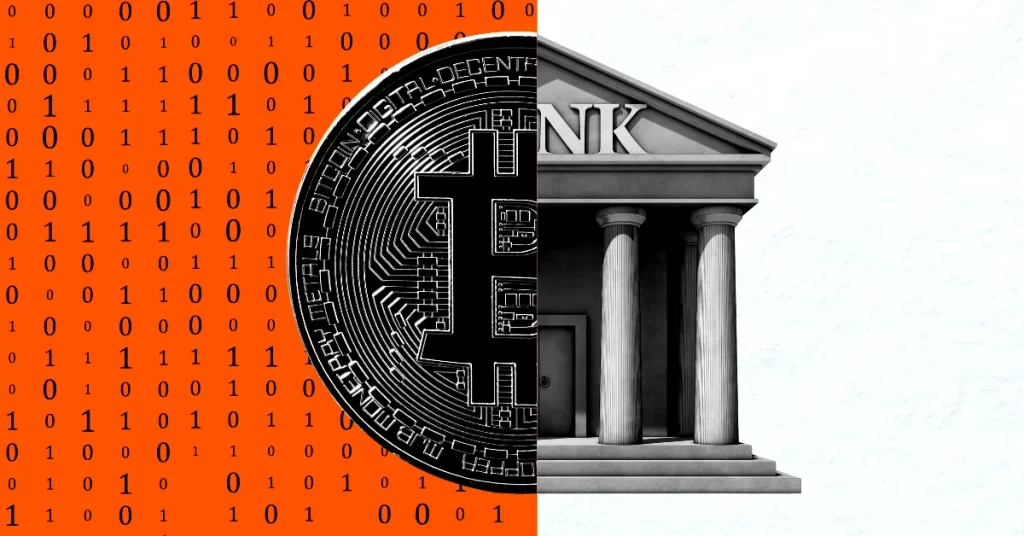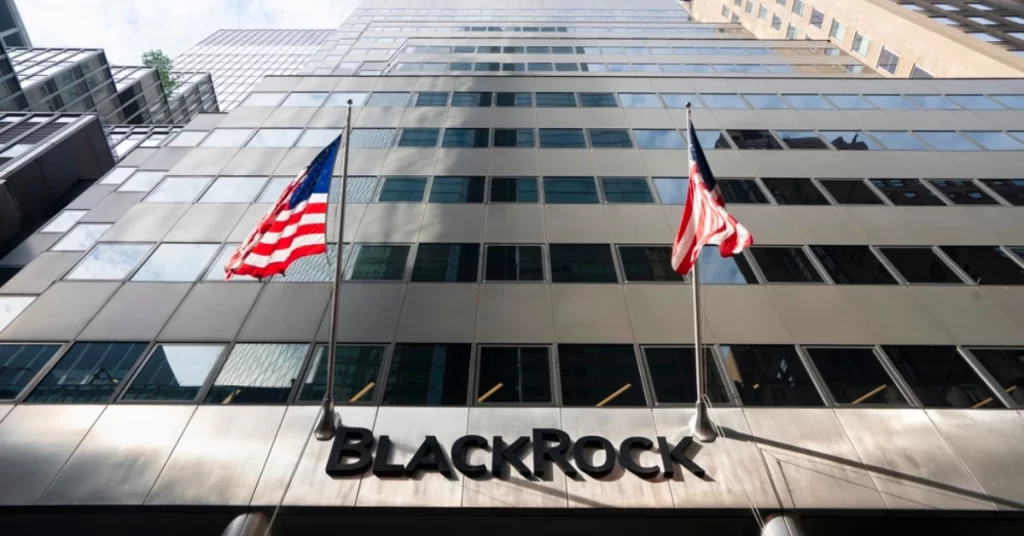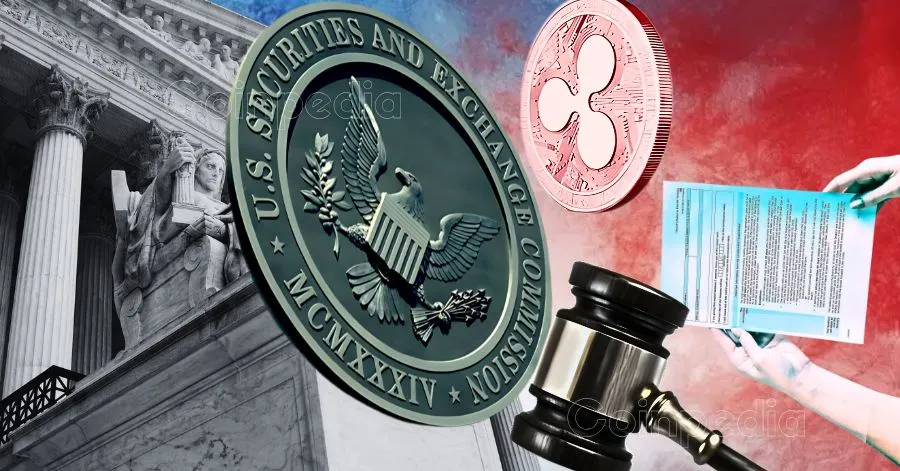
The post Can Cryptocurrency Beat Inflation? Bitcoin vs. CBDCs Explained appeared first on Coinpedia Fintech News
The average inflation rate for the world in 2023 was 5.69%, impacting the quality of life of people worldwide. Inflation is generally characterized by currencies losing value over time and an increase in the price of consumer goods.
But these price spikes are nothing compared to the volatility in the cryptocurrency markets, where there could be massive annual jumps on one hand and severe drops on the other, leaving room for increased volatility and market risks.
While central banks can raise interest rates and bring soaring inflation under control, there are no such options in the crypto market. The supply and demand for the limited number of coins available mostly drives the fluctuations in cryptocurrency values.
Is It Possible For Bitcoin To Replace Central Banks?
Before we dive deeper to know if Bitcoin has any effect on central banks, it is important to understand the role that central banks play in an economy. Central bank policymaking supports the global financial system. For instance, the Federal Reserve in the United States is responsible for controlling inflation and maintaining maximum sustainable employment. The Bank of England ensures the stability and solvency of the financial system in the United Kingdom.
These Central banks use a variety of tactics, known as monetary policy, to achieve their mandates. Mainly they manipulate the money supply and interest rates. For example, a central bank might increase or decrease the amount of money circulating in an economy.
The biggest advantage is that a central bank builds trust in the system. A central bank-issued currency is backed by a trusted authority and can be exchanged at a universal value. If each party in a monetary transaction issued its own coins, then there would be competition among the currencies, and chaos would follow.
Bitcoin on the other hand uses a decentralized system and a decentralized peer-to-peer ledger. It has the potential to become a globally accepted payment method and revolutionize people’s access to finances and financial services. However, most governments do not control or recognize it, and central banks cannot influence it.
This creates a few questions because some favor removing the influence and regulatory stances governments have on currencies, while some believe cryptocurrency is not a viable replacement for government-backed currency. So, is it possible that Bitcoin could replace central banks and fiat currencies? Let us dive deeper and understand more.
A Central Decision-Making Authority
The problem with the structure described above is that it places far too much trust and responsibility on the decisions of a central agency. In the interconnected nature of the global economy, the policymaking decisions and errors by one central bank are transmitted across many countries.
What’s the difference between CBDCs and cryptocurrency?
The main difference between a CBDC and a cryptocurrency is that a CBDC is – as its name implies – issued by a central bank. “CBDCs are direct liabilities of the central bank, just as paper cash is,” adds the Harvard Business Review, which makes CBDCs a safer form of digital money than commercial bank-issued digital money.
Cryptocurrencies are not issued by governments or other financial institutions. Instead, they are digital currencies exchanged between people and various entities on a decentralized system. Crypto is not backed up by a central public authority or within the banking system, it is not considered legal tender and users are not protected from price volatility or theft because of hacking, or when crypto firms collapse.
Can Crypto Beat Inflation?
Largely driven by institutional investments, the cryptocurrency has become increasingly aligned with general market movements, which means that when the market goes down, Bitcoin likely goes down as well.
Therefore, when news of inflation strikes, policy interest rates will go up, and there will be monetary tightening. As a result, assets including crypto like Bitcoin will see a price decline.
Notably, cryptocurrencies also experience inflation, even Bitcoin, which is often seen as “inflation-resistant.” However, as mining for new Bitcoin is automatically reduced by 50% every four years, inflation rates also decrease eventually.
Although Bitcoin is more volatile than gold, it offers better long-term growth prospects and therefore protects against inflation. But how?
How Bitcoin Serves As an Inflation Hedge?
Bitcoin’s fixed supply makes it a good inflation hedge. One key to making an asset resistant to inflation is scarcity. Because Bitcoin has a limited supply, it remains scarce, thereby ensuring that its value will remain steady over time, which is why it is dubbed “digital gold.”
Bitcoin, like gold, does not belong to any single entity, economy or currency. Bitcoin is a better option than equities because it does not have to deal with the many economic and political risks associated with stock markets.
Much like gold, Bitcoin is durable, easily interchangeable, scarce and secure. Bitcoin has the advantage over gold, given that it is more portable, decentralized and transferable. Due to its decentralized nature, anyone can store Bitcoin, while gold has a controlled supply in sovereign nations. Cryptocurrencies like BTC and Ethereum provide a great alternative to investors who want to diversify their investment portfolios.
How Bitcoin Has Transformed Economies and Institutions
On 7 September 2021, El Salvador became the first country in the world to adopt bitcoin as a legal tender which has transformed El Salvador into a beacon for financial innovation as other nations began to closely observe its bold experiment. Today, with 5,748.8 bitcoins held in national reserves, El Salvador’s leadership continues to buy bitcoin, depicting its confidence in the long-term potential of the digital asset.
In another example, since 2020, CEO Michael Saylor has focused on growing MicroStrategy’s value by buying Bitcoin with debt, particularly through convertible bonds, and capitalizing on the cryptocurrency’s high volatility. As a result, over the past five years, MicroStrategy’s shares have appreciated by nearly 1,200%, closely mirroring fluctuations in Bitcoin prices.
Also, lately, the approval and launch of spot Bitcoin ETFs have further validated Bitcoin’s legitimacy in the mainstream financial system which has bolstered confidence in Bitcoins. Spot Bitcoin ETFs represent a significant evolution in cryptocurrency, offering a regulated and simplified way to gain exposure to Bitcoin’s prices.
But, despite all of this, some believe that cryptocurrency is not a viable replacement for government-backed currency. Also, Bitcoin has not been adopted at a rate that it would become a replacement for current financial systems. Rather, it has earned a place as a favorite for financial speculators and risk-takers because they believe its price will continue to rise even with nothing backing it but the hype.
The Government-Backed Solution
CBDCs potentially offer a way to enhance economic stability and boost the effectiveness of monetary policy.
Like all cryptocurrencies, CBDCs are founded and function on the bedrock of blockchain technology and use decentralized and encrypted checks and balances to record transactions and protect investors from fraud and cyberthefts.
Notably, 134 countries & currency unions, representing 98% of global GDP, are exploring a CBDC. Currently, 66 countries are in the advanced phase of exploration—development, pilot, or launch. Every G20 country is exploring a CBDC, with 19 of them in the advanced stages of CBDC exploration. Of those, 13 countries are already in the pilot stage. This includes Brazil, Japan, India, Australia, Russia, and Turkey. Three countries have fully launched a CBDC—the Bahamas, Jamaica and Nigeria.
This leaves investors in a dilemma if they should invest in cryptocurrencies that offer significantly more returns although caught with high risk, or should they opt for the safe route and invest in CBDCs?
Cryptocurrencies are decentralized and lack the censorship that comes with government-controlled CBDCs. This makes CBDCs vulnerable to inflationary situations as the supply is not fixed and can be increased at the discretion of the Central Bank.
A key discussion point however revolves around safety and security while transacting using Bitcoin or CBDCs. While transacting in Bitcoin, investors enjoy greater privacy than in the case of CBDCs as the transactions are pseudonymous. In the case of CBDCs, investors are subject to compliance measures and need permission to engage in transactions which takes away the control and freedom of investors.
Bitcoin or Gold?
Precious metals like gold and silver are often considered by investors seeking to potentially stabilize and protect their portfolios due to their historical performance during periods of economic volatility.
Bitcoin and gold are commonly compared. Both Bitcoin and Gold have distinct advantages as stores of value. Gold offers time-tested stability and universal acceptance, while Bitcoin provides modern benefits like decentralization, portability, and digital security.
Understanding these differences is crucial for making informed investment decisions in a rapidly changing economic landscape. Whether you lean towards the ancient charm of gold or the futuristic promise of Bitcoin, each of the assets offers unique benefits that cater to different investor preferences.
So Which Is The Best Inflation Hedge?
Cryptocurrencies are a lightning-quick, efficient and cheaper way of conducting financial transactions whereas CBDCs due to being controlled and subjected to bureaucratic processes are much slower and a lot more complex in nature. However, some investors prefer the control and transparency that are linked to CBDCs over the anonymity of Bitcoin.
Bitcoin and cryptocurrencies are supported by a global network of traders and miners while CBDCs are a concept that is undergoing various levels of research and development. Therefore, it is crucial for investors looking to invest their hard-earned money into digital currencies to match the rapidly changing pace and scrutinize the impact of Bitcoin and CBDCs on their personal investment strategies.
Therefore, consumers need to understand the differences between these concepts and the ways they could interact and impact one another.

 3 months ago
40
3 months ago
40









 English (US) ·
English (US) ·